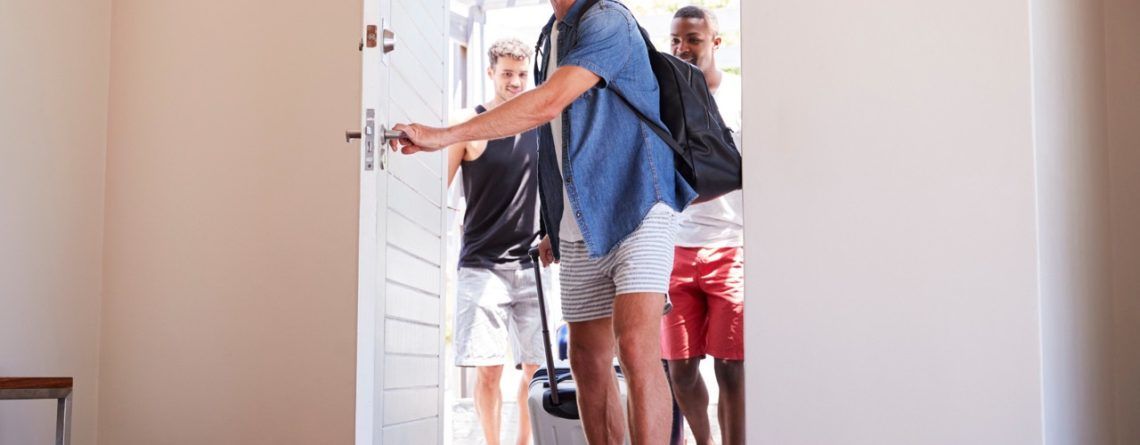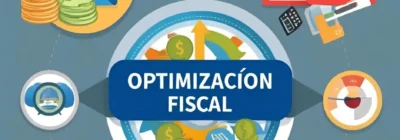How is holiday home rental are taxed in Spain?
Patrick Gordinne Perez2024-09-11T19:11:39+00:00Holiday home rental is a type of rental that has experienced significant growth in recent years and many people wonder how holiday home rental is taxed in Spain.
Introduction: Understanding holiday home rental and its tax impact in Spain.
It consists of the temporary transfer of a home or property for holiday use by tourists or visitors for a small period of time.
The property does not have to be the tenant’s habitual residence. A tourist licence is required for tourist rental.
However, it is important to note that holiday lettings are not exempt from tax obligations.
The taxation of holiday rentals can vary according to the tax laws of each country or region, and it is essential to understand the tax implications associated with this activity.
Holiday homes are usually advertised on portals or websites such as booking or Airbnb.
The tax authorities require these companies (including real estate agencies) to declare form 179, which is an informative declaration where they have to declare what the owner receives for the rentals they manage.
This is where the tax authorities get the information on how much you collect from renting your home.
If what you declare as income does not coincide with the 179 or if you simply do not declare it, the tax authorities will inspect you and probably fine you.
You own a property in a coastal municipality, and from this summer onwards you are planning to rent it out temporarily to tourists.
How will you have to pay tax on this rental?
Is VAT or Itp included in the holiday home rental?
Depending on the services provided
If you simply rent the property (furnished or unfurnished), without providing any other services during the tenant’s stay, you will not have to charge VAT regardless of the duration of the rental (the simple rental of dwellings is exempt from VAT).
Attention! However, if you rent a furnished flat and you are obliged to provide additional services typical of a hotel, the exemption does not apply and you will have to charge VAT:
- This applies, for example, to restaurant services, the cleaning of the property and the regular washing of bed and bath linen, or the provision of other services such as laundry, luggage storage, newspapers, etc.
- On the other hand, cleaning and linen change services provided at the beginning and end of each rental period, or the mere provision of equipment such as crockery, kitchen utensils and appliances, etc., are not considered to be hotel services. Nor maintenance services in the case of repairs to plumbing, electricity, blinds, electrical appliances, etc.
Rent with VAT
If the rental is subject to VAT, please note that you must register with the tax authorities (by submitting a census declaration) under heading 685 (“Non-hotel holiday home accommodation”).
In general, the rate to be charged on your invoices will be 10%. Note. In any case, you will be entitled to deduct the VAT you pay for this activity (for repairs, consumption costs, etc.).
Renting with ITP
If the rental is exempt from VAT, it will be taxed by ITP. This tax is due at the time of formalising the rental, and the lessee is responsible for its payment (which must be made within one month of the formalisation of the rental).
However, in general, the ITP to be paid will be low. To calculate it:
- Take as a base the rent to be paid for the entire duration of the contract
- And apply to this base the special rate set out in the law (unless your autonomous community has its own rates). For example, for a two-week rental for 1,000 euros, the rate is 7.21 euros.
Taxation of holiday home rentals in the IRPF (personal income tax in Spain)
Income from holiday home rentals
There are also differences in the taxation of your personal income tax:
- In case the rental to tourists is made without providing hotel services, in general the income must be declared as income from real estate capital.
- If, on the other hand, hotel services are provided, they must be declared as income from an economic activity.
No rent reduction
In neither of the two cases can you apply the 60% reduction on the income obtained, as this applies to rentals of dwellings for permanent use.
With an employee
On the other hand, if you rent without services and you have at least one full-time employee (who is in charge of managing the activity), the income is also declared as coming from an economic activity.
However, the number of properties rented and the work involved in managing the rental activity must justify the need for such an employee.
If you rent out between one and three properties, it is difficult for the tax authorities to accept that there is an economic activity.
The taxation of tourist rentals depends to a large extent on whether or not the rental is carried out with additional hotel services.
In this case, in addition to VAT, the rental is considered an economic activity.
How do I declare holiday rentals if I am a non-resident?
From 2024 the rental tax income for non resident are submitted ONLY ONE TIME the 1sT to 20th January the next year
Until 2023
Non-resident individuals (and non-resident companies as well) must declare the income obtained during the quarter.
The declaration is made by means of form 210 and is declared before 20 April 20 July 20 October and 20 January.
From 2024
The declaration is made by means of form 210 and is declared between the 1 and January the next year. So for the 2024 is done between 1 and 20 January 2025
The tax rate applicable to holiday rentals in Spain
Residents of the EU, Iceland and Norway: 19%.
Other taxpayers: 24%.
Deduction of the costs of a holiday rental
European citizens or companies
European citizens can deduct the expenses in the proportional part of the tenants’ stay.
Non-European citizens or companies
They cannot deduct any expenses and have to pay tax on their income.
If the property is expected to be rented but is advertised in real estate agencies, the annual expenses (community fees, property tax, insurance and purchase of furniture, the latter being deductible through depreciation) will only be deductible during the periods in which the property is rented.
During the periods in which the property is not rented, the imputation of real estate income will be applied.
What expenses are deductible in holiday home rentals?
The taxpayer can deduct the expenses incurred during the rental period from the full income. Expenses that are annual in nature and not attributable to specific lower periods, such as Real Estate Tax (IBI) or depreciation, must be apportioned according to the number of days the rental lasted in the tax period.
In general, the following expenses are deductible:
- Ibi (Sum).
- Community expenses
- Internet, water, electricity and gas.
- Insurance
- Cleaning
- Rental management company
- Agency, real estate, Booking, Airbnb.
- Amortization of the house and furniture.
- Interest on loans
- Interest on borrowed capital invested in the acquisition or improvement of the property, right or right of use or enjoyment from which the income derives, is considered a deductible expense. The same applies to other financing costs, provided that they are actually borne by the owner or holder of the right in rem.
- Thus, interest expenses accrued on borrowed capital invested in the acquisition or improvement of the property, as well as depreciation expenses, are not deductible during the period in which the property is not rented.
- Repair and maintenance
- Maintenance and repair expenses incurred prior to the lease may be deductible, provided that a correlation with subsequent income can be demonstrated and that such expenses are exclusively for the purpose of offering the property to third parties and not for the enjoyment, even temporarily, of the property by the owner. In other words, the owner cannot enjoy the house.
- With the exception of the above, expenses corresponding to the period in which the property has been empty are not deductible, even if it is leased before or after.
From now on, digital platforms that intermediate in tourist rentals must file form 238.
If you are interested in how tourist rentals are taxed, you should know that platforms such as airBnb or booking are obliged to declare to the tax authorities the income of the owners that they publish on their pages.
Form 179: cancelled
Form 179 “Annual information return on the transfer of use of dwellings for tourist purposes”, which until now had to be filed by intermediaries in the rental of properties for tourist purposes, has been cancelled (the last return filed was that of January 2024, relating to operations in the year 2023).
New form 238
However, you should know that digital platforms that intermediate in tourist rentals will still have to report these operations through the new form 238 “Informative declaration for the communication of information by platform operators”.
This form must be filed in January of each year (in January 2025 they will have to report the operations of 2024).
The tax authorities are still informed
So, if you are a lessor of a tourist property and you use these digital platforms, bear in mind that the Inland Revenue will continue to be informed of your rentals.




